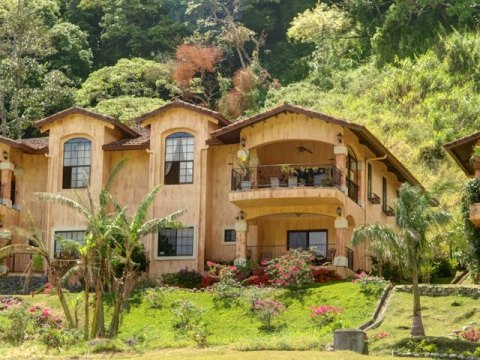I have investigated the idea of using more of my IRA money to buy real estate here in Panama. Not only can I legally do this but, I can leverage my investment so long as I am not personally responsible for the loan and obtain what is known as a “non-recourse” loan. Personally, I will be investing in an agriculture business where I can borrow money, without personal recourse at 2% for up to 30 years with no payments of principal or interest for the first 12 months.
Some people think that you can simply open an account at an IRA trust company in the US, form a Panama Corporation and buy the shares with your self directed IRA funds. Not so I have learned, as you expose yourself to certain taxation here in Panama in doing so, unless you invest in agriculture where there is no taxation 🙂
If you want to buy a condo in Panama City and rent it out, you are better off in forming a LLC back in the US to hold ownership of the asset here as a Panama Corporation is subject to taxation in Panama, plus you have the annual corporation fees that can run $550 per year (hat tip to to my friend Jeff Duda in PC). We have a number of units set up for investment and the return while not huge, is 5 Percent or better if it is bought right and offers appreciation over the next 5 to 10 years as Panama grows. You can also buy a unit now to use in your retirement years but you must wait until you are qualified (age 59.5) and then buy it personally out of the IRA. As an example, I have a Villa in Valle Escondido that you can buy for $425,000 and rent it out immediately as there is huge demand and no supply and generate a 6% or better return. Go to my listings and it is shown there as Spacious Villa in Valle Escondido with Country Club Membership.
Here is a story in the New York Times that speaks to the basics of real estate investing and Self Directed IRA accounts.
By PAUL SULLIVAN
Published: April 20, 2012
THE past couple of years have left many people staring in disbelief at the returns on their individual retirement accounts. Consider last year, when the Standard & Poor’s 500-stock index finished the year essentially where it started.
So it makes sense that people are looking for ways to earn more for retirement — or to make up for losses. Yet when I heard that an increasing number of people were moving money from traditional I.R.A.’s to self-directed I.R.A.’s that focused on real estate, I was skeptical that this was a good idea.
First, I wondered, how could this be done with retirement money? Was it even legal? And were people who had worked and saved money for their retirement really putting it into real estate so soon after the bubble burst?
It turns out there is nothing illegal about using a self-directed account to buy real estate or many other things, for that matter. But this does not mean it is easy. There are dozens of caveats on how to do it, and the specter of running afoul of the Internal Revenue Service looms large. (And to be clear, this is still a niche, with only about 2 percent of the $4.8 trillion in I.R.A.’s in self-directed accounts, according to Equity Trust, one of the big players in the industry.) Read the rest of the article here.
